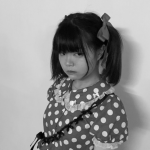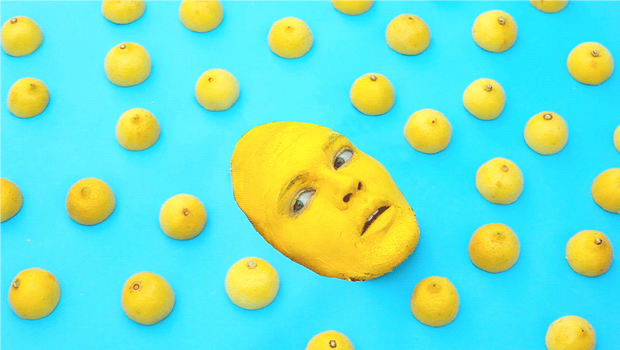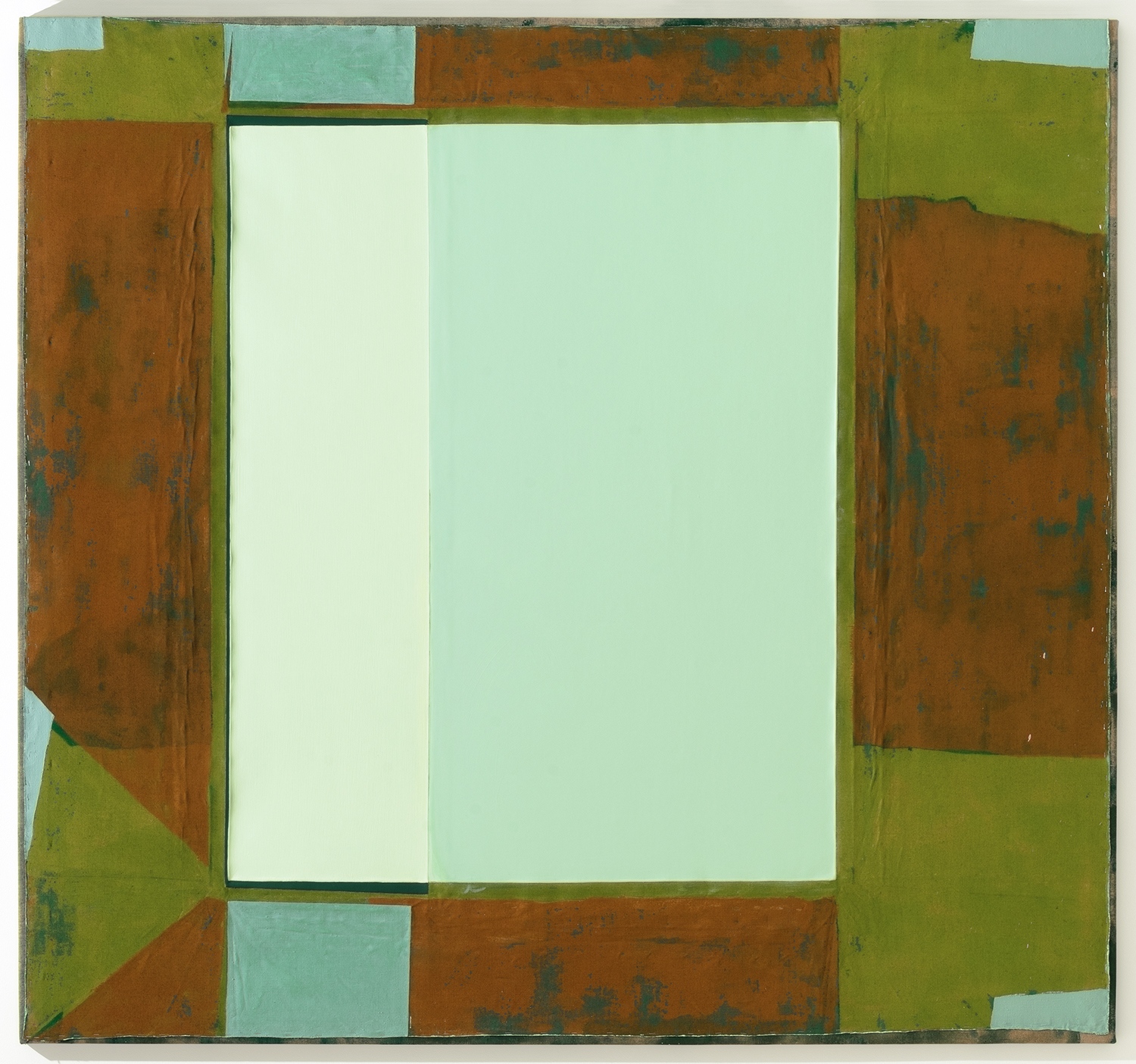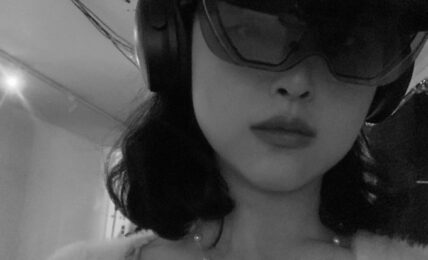Digital America interviewed Yasmine Anlan Huang in April 2022 about her work Illogical Innocence (2019).
:::
Digital America: All spoken words throughout the piece are very mechanical and robotic, both from the perspective of the men and the idol girl. How does the use of this voice contribute to setting the scene of these interactions in a digital space? Do you find that it was sometimes hard to believe that while communicating only through Tinder online, there were real people on the receiving end of your messages?
Yasmine Anlan Huang: The emergence of digital media brings a sociotechnical impact on our intimate life, and I believe the idol industry and dating apps share similar characteristics under the influence. AKB48 gained its popularity in the era of the mobile web, as idols could share daily updates with fans who were also subscribers of their “good morning” and “how are you” text. The online interactions with these girls are more or less the same as “pocket girlfriend.” Isn’t it like the first stage of dating apps too? Text only, images and emojis, maybe.
I am always curious about how we can float with this unprecedented change in digital media, and examine the incoming flux of intimate relationships. The one-sided theory suggests digital communication strategy sabotages the romance. The simplified interface eliminates the nuanced facial expression, while true feelings are elusive. In this case, the mechanical and robotic voice can better simulate people’s alienated feelings on dating apps, for both sides.
Even though I heard the story of chatbots or fake accounts on dating apps, I still hadn’t thought people I was talking to were “fake”. Maybe that’s because there were signs showing the other person was typing. But maybe that’s because I hadn’t researched Replica — whose slogan is “The AI companion who cares” back then.
DigA: In the process of creating this piece and monitoring Tinder interactions, was there anything that surprised you about how people would respond to your avatar? Having already had an understanding of how Asian girls were treated online in this fashion, did your perspective change after completing this piece?
YAH: Here’s the archive of my on-site performance and all the messages I received within around 3 hours: https://www.yasminehuang.com/illogical-innocence
As you can see, I expected people to be rude, and I did want to provoke the unabashed rudeness in a vulnerable disguise. However, sometimes the messages I received were just…speechless (sigh). Even though I was shocked and maybe also traumatized by the sex-relevant messages, things surprised me in a good way. Some of my matches were actually nice, curious, and polite, ensuring he respected my culture. If I weren’t performing, I would like to know more about themselves and figure out what makes people’s attitudes differ.
DigA: You made Illogical Innocence in 2019, but now it is 2022. In these past few years have you noticed any big shifts in online culture, especially surrounding idol and Asian fetishization? Do you have hope for a “better” future for how Asian girls are depicted online?
YAH: I don’t actually need to wait till 2022 to notice the shifts, while the same changes were happening in 2020. I had my second performance in 2020, March, which was an online performance rather than an on-site one. It was scheduled months ago, so nobody really expected a covid outbreak would be happening exactly at the same time. That performance was awkward, stressful, if not the word “unsuccessful.” All my matches at that time were only focusing on how to stay safe from suspicious viruses. The greetings I received had less sex-relevant content, but their concerns about my safety and health condition. Especially right after the hate crimes towards Asian in NYC subway, I would receive “are you okay” text from random people on Tinder.
Covid changed a lot, and I like how explicitly these changes manifested. Personally speaking, I feel like the fetishization towards me is gradually replaced by the feeling of otherness, throughout these several years.
However, in general, the popularity of Asian presentations on media, entertainment, and social media is overgrowing (just think about K-pop girl groups and how hard it is to get their concert tickets), which is undoubtedly good, but not good enough to compensate the fetish and commodification towards Asian women. I am still happily researching this phenomenon, and thrilled to see how this brand new image of Asian will bring us new recognition. This trend won’t guarantee a equal image, not even “better” image in your words, but it will be the hope for a “different” future.
DigA: You mentioned that Illogical Innocence was created out of a confusion of your personal identity upon relocating from Asia to the US, how would you say your art in general has changed, in process or theme, since this move?
YAH: Before I came to the US, my work was all about exploring cuteness — a taken-for-granted experience for me. However, for most of the artists I meet initially, the concept of cuteness or idols is just too hard to contextualize, not to mention to respond to, or even echo with the complicated power struggle hidden in these topics. Right before I made Illogical Innocence, I had been wracking my brain to have a better narrative strategy to engage audiences.
The direct trigger for this project actually happened in my first class in MFA. A random skateboarder dashed toward me, shouting, “I love Asian”. I was confused for a long time: is this racist? What if he’s just expressing his preference? At one point I started to think “okay, this could be the starting point, maybe my confusion will lead my work to a different stage.”
Since then, the starting point of my art practices has changed, even though the theme remains the same. No longer the third person pespective, my work now is about myself, my insecurity, vulnerability as a petite Asian girl, my longing for the idol-like cuteness, the eternal girlhood. I wish these daring murmurs and self-exposure can offer a better portrayal of egocentric daydreams as well as an easier entry of the hidden intensive research.
DigA: Is there anything you’re currently working on that you’re excited to share?
YAH: Even though I have always been skeptical about dating apps and its impact on human feeling, ironically, I met my now-fiancé on one of my research platforms. This experience really challenged my practice as I didn’t believe in online dating at all. But maybe, there’s more possibility of digital media other than alienation, as we can never go back to the era without them.
:::

Yasmine Anlan Huang is an artist and writer. She received her BA (Hons) from Creative Media in City University of Hong Kong, an MA from University of Hong Kong, and an MFA degree from Parsons School of Design. As an active human observer, Yasmine is wandering among poetry, philosophy and digital culture, fascinated by undetermined anecdotes and myths. Recent projects and features include: Winter Residency, (Penland School of Craft, 2022); Guerrillas in Flatland: Unite! Digital Voyagers (Power Station of Art, Shanghai, 2021); Ars Electronica (Austria, 2020); SpeakAIR Online Residency (SpeakART, Canada, 2020).



